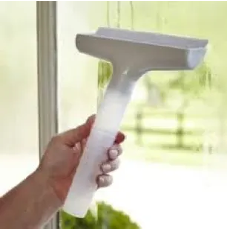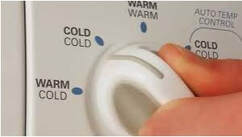|
Tips for keeping your home warmer and drier in the colder months  As the temperatures drop, and the colder months start to set in, many of us are looking for ways to stay warm and cosy at home without breaking the bank. Fortunately you can take several easy steps to keep your home warmer and drier during the colder months. Here are some tips from Christchurch Charitable Trust Community Action (CEA) to help you get started. Use good quality curtains One of the easiest ways to get free heat is by opening your curtains in the morning to let the sun in and closing them at dusk to trap the heat in. This helps regulate your home’s temperature and reduce your heating bill. You can visit CEA’s Curtain Bank for free thermal lined recycled curtains. Curtains can be made to your specific measurements and there are no qualifying criteria. For more information, visit wwww.cea.co.nz/curtains/. Try not to dry clothes inside Dying your clothes in poorly ventilated rooms during winter could make your house damp and lead to mould growth. If possible, use a dryer or hang clothes outside on a day when it isn’t raining. If this isn’t possible, try to keep a window open or use a dehumidifier. Keep an eye on condensation that may develop on windows. Wipe condensation Moisture can build up on your windows, and as the day heats up the moisture will evaporate into your house and lead to dampness making it harder to heat your room. To prevent this, wipe condensation off your windows every morning and invest in a squeegee or a ‘Scoopy’ to catch it. You can purchase a Scoopy at www.cea.co.nz/shop/ Ventilate your home It is essential to ventilate your home daily, even in winter. Open windows on opposite sides of your house for at least 10 minutes each day to allow fresh air to circulate.  Use your heat pump wisely If you’re using a heat pump to heat your home this winter, be mindful how long you have it on and at what temperature. It is recommended that during the colder months you set your heat pump to around 18-22 degrees, and only use it in the rooms that need heating. Although this seems low, having it on a higher setting won’t actually heat up your room any faster. It’s not wise to leave your heat pump on all day either. If you can, schedule your heat pump to activate 15 minutes before you get home. Assess your heating Depending on your home’s layout and insulation, radiant heat (bar heaters, log burners) may be more efficient than convection heat (fan heater, oil column heater). Contact CEA heating experts for advice on how to best heat your home with the resources you have.  Use dry firewood If you’re using a log burner, only use dry firewood to prevent excess moisture build up. Use cold water for washing Hot water can account for up to 30% of your power bill. Try to use more cold water to wash clothes and dishes and take shorter showers in winter. Keep furniture away from external walls To prevent mould from growing, keep a gap between your furniture and external walls. Use a double-door sausage
Use a double-door sausage that moves with the door to prevent drafts between heated and unheated parts of your home. You can purchase one at www.cea.co.nz Keep doors closed Keep the doors closed to your bathroom, kitchen and laundry shut to reduce condensation and dampness in these areas. Avoid using unflued gas heaters These heaters can emit up to one litre of moisture every hour, leading to dampness in your home. They are also expensive to run and can release dangerous gasses, so always use them with a window open and preferably only use them in emergencies. By following these simple tips, you can keep your home warm and dry during the colder months while saving money on your heating bills. You may be eligible for 80-100% subsidised insulation. As a charitable trust, CEA can provide subsidised funding to eligible homes with assistance from the Warmer Kiwi Homes programme. Get in contact with them for more information and to check your eligibility. www.cea.co.nz or 0800 438 9276 Ref: Keeping on August 2003 Comments are closed.
|
AuthorShonagh O'Hagan Archives
July 2024
|

 RSS Feed
RSS Feed